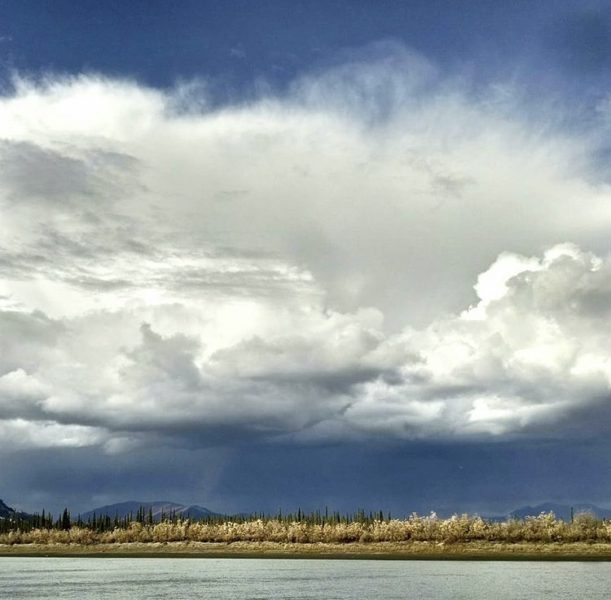How we read the news says as much about us as the events themselves
It’s been a minute since I sent out a blog post, but the events of the last few days got me thinking about how, as a kid growing up in the eighties, I remember listening to my parents’ stories about bearing witness to so much important news.
Throughout the sixties and seventies, they witnessed all the good stuff: Martin Luther King and the fight for desegregation, César Chávez and the struggle for better treatment for farm workers, the fight for women’s equality, the Stonewall riot and demand for LGBTQ rights.
Hearing those stories, I always thought that perhaps I had been born in the wrong decade. Oh, how I longed to have been born in that era to be a part of such meaningful, extraordinary change. To be a part of living history. As a highly sensitive empath unsure of my place in the more-is-more, winner-take-all, prey-or-predator culture of the eighties (I was always “the loser”), I felt that allying with such meaningful movements would have finally imbued my life with purpose.
Now that the news cycle is permanently set to WINTER WEATHER ADVISORY, thanks to four years of political upheaval, Capitol Insurrections, pandemics, and now “the largest European war since WW2,” I be like:

And then I listened to this podcast on Life Kit, called “What to say to kids when the news is scary” (I highly recommend for anyone who teaches or has kids), and it reminded me about how Mr. Rogers’ mom said, “Always look for the helpers.”
That got me thinking. How do I read the news? How we read and respond says a lot about our character.
When 9/11 happened, I remember sitting in el médico in Jacó, Costa Rica, waiting to get the papers that would allow me to go forward with my food service license. I was starting a food stand in Playa Hermosa, the largest surf break in all of Costa Rica. Suddenly footage of 9/11 hit the TVs.
After getting my papers, I immediately went to a beach bar, the only place I knew that had a TV and cable. The footage from 9/11 was playing on the TV. I talked to the Ticos (that’s what Costa Ricans called themselves), and they said to me, “An attack on America is an attack on all of us.” The way I will always remember 9/11 is as a moment of solidarity with the rest of the world. That the rest of the world had our backs.

While reading about Russia invading Ukraine, I was struck at the part where President Biden mentioned that twenty-seven countries had united in their response to support Ukraine and punish Russia. The cooperation and unity and dedication almost moved me to tears.
When our town of Juneau fell under massive snow, ice, and rainstorms last month, I marveled at how our town banded together, across political and cultural divisions, to help neighbors shovel their roofs, gravel their driveways, and stop the floods in their basements.
How we respond to the news says a lot about ourselves. Do we assign good guys/bad guys? Do we damn and vilify “the other”? Do we protest and make noise? Do we go out and buy all the ammo? Do we share poetry about hope and videos of our babies in order to focus on the positive? Do we stock up on toilet paper? Do we clean our homes furiously because that is all we feel we can control at the moment? Do we yell at our kids because we’re bottling up worry because we don’t want to freak our kids out? (Guilty!)
As a mother of a young son, the news that Ukraine has banned men eighteen and up from leaving the country gave me the most pause. What would I do if I was living in Ukraine and my son was facing an imminent draft?
Here is a poem a friend sent me. Clearly she is more positive than I am, so it would only make sense that this is how she responds to catastrophic news. Bless her heart.

Screw it. I will continue to worry, either because I am not yet evolved enough, or because I subscribe to the belief that paranoia will save ya, and because we play the “what if” game in my family, which means that I might not be so fun at house parties also pretty good in high stress situations.
I’m not saying there is a wrong way or right way to read, hear, see, or respond to news. It just says a lot about ourselves.
Okay, time for pretty pictures palate cleanser…

And because we could all use more poetry…

That’s my newsletter for today. If you made it this far in reading, I want to give you a virtual HUG! Thank you so much for showing up and bearing witness.
If you enjoyed this blog post, please pay it forward and forward the post to someone who might enjoy reading or need these words today.
Also, make sure that you sign up to receive email notifications so you don’t miss a post! I recommend signing up for my monthly newsletter at this link. No spam, and it’s free, and you unsubscribe any time!
Take care of yourselves. Drop a line. Love you.
Summer
